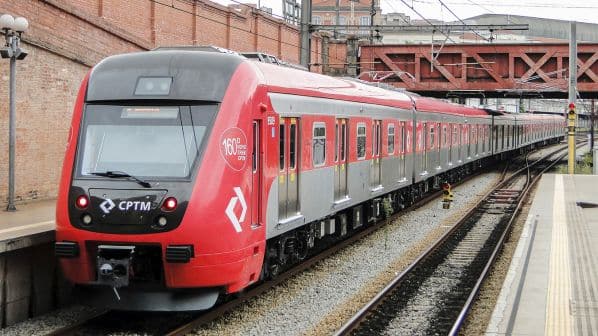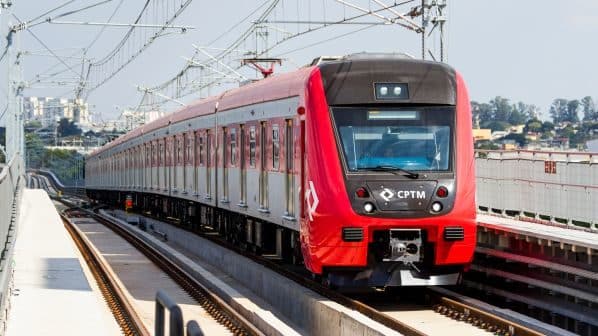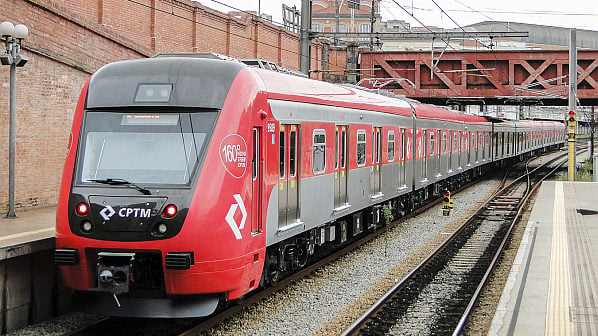THE Secretariat of Investment Partnerships (SPI) of São Paulo state has published a revised tender notice for the North Axis of the InterCity Train (TIC) project, which will see the route between the city of São Paulo and Campinas upgraded to provide express passenger services.
The first project of its kind in Brazil, TIC is being taken forward as a public-private partnership (PPP) that will now involve total investment of Reais 13.5bn ($US 2.66bn), an increase on the original figure of Reais 12.8bn.
The winning bidder is due to be selected by auction on February 29 2024, and will be awarded a concession to undertake infrastructure work, introduce new trains and then operate the North Axis for a period of 30 years.
The journey time over the 100km from Barra Funda station in São Paulo to Campinas will be 64 minutes, with one intermediate stop in Jundiai. A fleet of 15 1600mm-gauge EMIUs will be required to operate the new express TIC service.
The project also includes the Inter-Metropolitan Train (TIM), which will run over the 44km from Jundiai to Louveira, Vinhedo, Valinhos and Campinas. End-to-end journey time will be 33 minutes and a fleet of seven EMUs will be required to operate the new service.
The PPP also includes the concession for Line 7/Ruby of the São Paulo Metropolitan Trains (CPTM) commuter network, serving a total of 17 stations over the 57km from Barra Funda and Jundiai. The 30 EMUs that operate on this route will be transferred to the TIC concessionaire.
Of the total required investment of Reais 13.5bn, the São Paulo state government will contribute Reais 8.5bn. This will include financing of Reais 6.4bn approved by Brazil’s National Bank for Economic and Social Development (BNDES).
The TIC North Axis project will see the upgrade or construction of a total of 431km of track, as well as building five rolling stock yards, installing a new signalling system and a new control centre. Electrification work will include the construction of eight traction substations.
As well as building new stations, the concessionaire will upgrade stations on Line 7/Ruby and undertake work at Lapa and Água Branca to provide better interchange with other lines. Accessibility for passengers with reduced mobility will be improved.
Civil works will also include new bridges, drainage and fencing in the right of way.
The signing of the PPP contract is scheduled for the second quarter of next year, with the concessionaire taking over operation of Line 7/Ruby in the 18th month of the contract term. TIM services are expected to start operating in 2029 and TIC in 2031.
The project will benefit a population of 15 million people in 11 municipalities. It is expected to create over 10,500 new jobs, both directly and indirectly, while helping to reduce CO2 emissions and improve road safety throughout the region.
According to the tender notice, the maximum fare will be Reais 64 on TIC and Reais 14.05 for TIM. The Line 7/Ruby fare will remain unchanged at Reais 4.40. Fare levels are intended to guarantee minimum revenue for the operator while ensure that rail services remain competitive with other modes at a fair price for passenger.
Another change to original tender notice is the introduction of a revenue adjustment mechanism for the São Paulo – Campinas express service, which guarantees the operator up to 90% of projected revenue. If revenue is more than 110% of the projected figure, the excess will be divided equally between the contracting authority and the concessionaire.
“Republication does not change the project's delivery schedule,” says Mr Rafael Benini, secretary of investment partnerships at the São Paulo state government.
“The changes were made to have a fairer price for the passenger and an even more attractive project. We are giving more time for interested parties to study the notice and have a successful auction in February next year.”
For more data on South American rail projects, subscribe to IRJ Pro.




